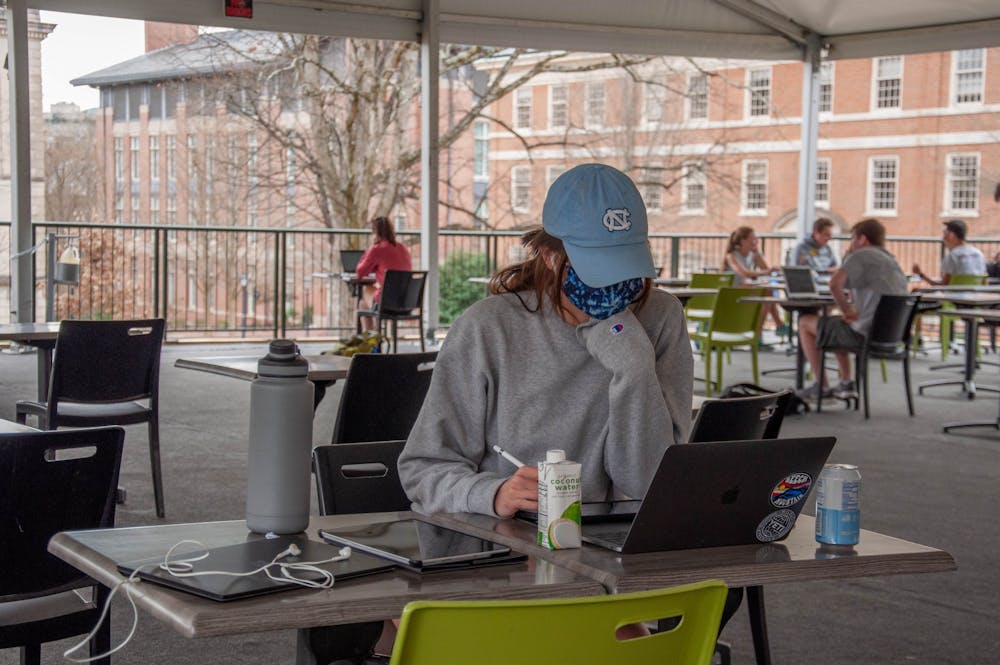When we were younger, most of us were probably asked the same question: what do you want to be when you grow up? It seems like a question that a lot of us have been chasing since our earliest days.
We were told that if we wanted to be anything, we had to work for it. That we could only achieve our dreams if we worked hard, and never stopped doing so.
As college students, a lot of us still feel the effects of this mentality. We rushed from one thing to the next, doing everything and anything possible to turn these dreams into a reality. While it's OK to be ambitious and a hard worker, it's not OK to forget to take care of yourself. Many of us are so stuck looking to the future that we don’t even stop to think about our present — let alone live in the moment.
We are taught that this constant stress and anxiety is just a part of life. That freaking out over exams and racing to find resume fillers is normal. This isn't the case, of course, but this pressure that we put on ourselves is not just in our own heads — it comes from the society we live in.
From placing kindergarteners into Academically or Intellectually Gifted programs to encouraging students to take as many Advanced Placement classes as possible, students are placed into categories starting in primary school. Either you're a “gifted” student or you're not, and many spend years trying to force these categories to align with their own interests. And if you are deemed “gifted," you will probably spend your life dealing with that pressure. Many of those who aren't placed into that category break their backs trying to prove that they belong there.
But these categories mean absolutely nothing. They are created by the school system and oftentimes favor those who can afford to be placed in the “gifted” category, such as individuals who can afford tutors and additional academic support.
If these categories are fake, why do we care so much about them? Why do we strive to maintain or achieve them even after we are admitted to college?
Getting to college is stressful enough, but feeling that same pressure to maintain high standards is more alive than ever. Students were already highly anxious and stressed before the pandemic, and this ongoing health crisis has only worsened the effects.
A study of 33,000 college students conducted in fall 2020 found that half of students screened positive for anxiety and/or depression. The study also found that 83 percent of these students suffered academically due to their mental health.



